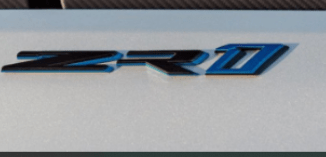Navigating the Bumpy Road of Vehicle Connectivity: Ford’s Standoff with Third-Party Services”

In our year-long Ford endeavors with test vehicles, we strive to explore every available feature, from smartphone-app-enabled remote start to third-party connected-vehicle services. While aspects like vehicle sharing, use-based insurance tracking, and road-use taxation remain beyond our immediate reach, the monthly Recurrent reports on our 2023 Ford F-150 Lightning all-electric pickup truck’s battery health have kept us informed. However, a recent roadblock emerged when Ford treated Recurrent’s connection as a cyber intrusion, raising questions about data access and ownership.
READ: New York Businesses Ordered to Require Masks Indoors or Vaccine Proof
Locked Out Ford:
Last fall, Ford’s reaction to perceived data theft led to a password reset for Recurrent users, causing an unintended consequence—owners were also locked out of Ford’s own apps for remote unlocking and starting. The situation unfolded into a standoff between Ford and third-party service providers, accusing them of unauthorized data access.
Blame Game:
Ford’s explanation pointed to data theft concerns, insisting that third-party providers should have utilized Ford-authorized application programming interfaces (APIs) or software-development kits (SDKs). Ford stressed the importance of proper channels, likening the situation to sharing bank account information.
Smartcar’s Perspective:
To unravel the complexities, we approached Smartcar, the connectivity vendor for Recurrent. Smartcar, founded in 2015, provides a universal API supporting vehicle connectivity across multiple brands. CEO Sahas Katta revealed persistent efforts to collaborate with Ford, with no success due to perceived reluctance on Ford’s part. Katta speculated that Ford might resist sharing data that contradicts marketing claims or advertising assertions about battery performance.
Fundamental Misunderstanding:
Katta expressed concerns about automakers’ reluctance, attributing it to a fundamental misunderstanding of the tech industry’s revenue generation. He highlighted the misconception that tech giants like Facebook and Google thrive on selling customer data, emphasizing that Smartcar doesn’t retain any data. Katta underscored the need for collaboration, pointing out that companies misjudging the value of shared data risk alienating vehicle owners.
Industry Disparities:
Tech-forward companies like Tesla, Volvo, BMW, and Mercedes-Benz have embraced openness by sharing APIs, resulting in enhanced user experiences. In contrast, manufacturers resistant to sharing intellectual property impede progress and hinder the potential for improved products and services.
Conclusion:
As the automotive landscape navigates the software-defined era, the standoff between automakers and third-party services sheds light on the challenges of data access and collaboration. While the industry grapples with these complexities, the hope is that collaborative efforts will prevail, leading to a future where technological advancements benefit all stakeholders.




